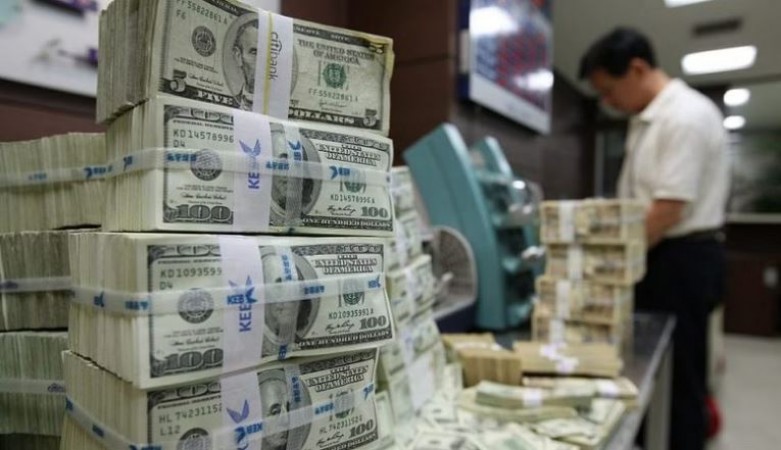
New Delhi: India's foreign exchange reserves have witnessed a significant increase of over $5 billion in the past week, reaching $595.4 billion, marking the highest level in the last three months. This surge positions India as the fourth-largest holder of foreign exchange reserves worldwide. The data, released by the Reserve Bank of India, reveals a substantial boost, contrasting the decline of about $462 million observed in the preceding week.
Global Ranking and Comparisons
India's foreign exchange reserves trail behind only China, Japan, and Switzerland. China boasts reserves of $3.1 trillion, Japan holds $1.1 trillion, and Switzerland maintains reserves exceeding $809 billion. This increase in reserves is indicative of India's robust and growing economy.
Economic Significance of Foreign Exchange Reserves
Foreign exchange reserves, comprising funds stored with a country or its central bank, play a pivotal role in facilitating international transactions and payments. They serve as a reflection of a nation's economic health. Countries facing economic challenges often grapple with insufficient foreign exchange reserves, as exemplified by neighboring Pakistan.
Components of India's Reserves
India's foreign exchange reserves consist of foreign currency, gold, special drawing rights in the International Monetary Fund (IMF), and reserve positions in the IMF. Notably, the currency reserves of other nations, including the U.S. dollar, euro, pound, and yen, constitute a significant portion. India presently holds $526 billion in currency reserves, $46 billion in gold, and $18 billion in Special Drawing Rights, providing flexibility for utilization. The reserve position represents the money deposited by a country with the IMF.
Historical Context and Recent Trends
India achieved an all-time high in foreign exchange reserves at $645 billion in October 2021. Subsequently, factors such as the Ukraine-Russia war and a strengthened U.S. dollar contributed to a reduction in reserves. The rise in crude oil prices further impacted India's reserves negatively.
Stabilizing Currency and Trade Impact
In addition to facilitating trade, foreign exchange reserves are instrumental in stabilizing a country's currency. The Reserve Bank of India intervenes in the foreign exchange market, selling dollars from its reserves to maintain the stability of the rupee. The trade dynamics, especially as an oil-importing nation, significantly influence India's foreign exchange reserves. This surge in reserves bodes well for India's economic strength, highlighting its resilience and ability to navigate global economic challenges.
Government Calls All-Party Conference Ahead of Winter Parliament Session
Unveiling Excellence: Todd Taylor's Journey As CEO of Taylor Benefits Insurance Agency
From Vision to Reality: Modi's $5 Trillion Dream Edges Closer with India's $4 Trillion GDP